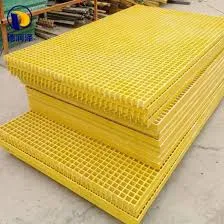
-
 Afrikaans
Afrikaans -
 Albanian
Albanian -
 Amharic
Amharic -
 Arabic
Arabic -
 Armenian
Armenian -
 Azerbaijani
Azerbaijani -
 Basque
Basque -
 Belarusian
Belarusian -
 Bengali
Bengali -
 Bosnian
Bosnian -
 Bulgarian
Bulgarian -
 Catalan
Catalan -
 Cebuano
Cebuano -
 China
China -
 China (Taiwan)
China (Taiwan) -
 Corsican
Corsican -
 Croatian
Croatian -
 Czech
Czech -
 Danish
Danish -
 Dutch
Dutch -
 English
English -
 Esperanto
Esperanto -
 Estonian
Estonian -
 Finnish
Finnish -
 French
French -
 Frisian
Frisian -
 Galician
Galician -
 Georgian
Georgian -
 German
German -
 Greek
Greek -
 Gujarati
Gujarati -
 Haitian Creole
Haitian Creole -
 hausa
hausa -
 hawaiian
hawaiian -
 Hebrew
Hebrew -
 Hindi
Hindi -
 Miao
Miao -
 Hungarian
Hungarian -
 Icelandic
Icelandic -
 igbo
igbo -
 Indonesian
Indonesian -
 irish
irish -
 Italian
Italian -
 Japanese
Japanese -
 Javanese
Javanese -
 Kannada
Kannada -
 kazakh
kazakh -
 Khmer
Khmer -
 Rwandese
Rwandese -
 Korean
Korean -
 Kurdish
Kurdish -
 Kyrgyz
Kyrgyz -
 Lao
Lao -
 Latin
Latin -
 Latvian
Latvian -
 Lithuanian
Lithuanian -
 Luxembourgish
Luxembourgish -
 Macedonian
Macedonian -
 Malgashi
Malgashi -
 Malay
Malay -
 Malayalam
Malayalam -
 Maltese
Maltese -
 Maori
Maori -
 Marathi
Marathi -
 Mongolian
Mongolian -
 Myanmar
Myanmar -
 Nepali
Nepali -
 Norwegian
Norwegian -
 Norwegian
Norwegian -
 Occitan
Occitan -
 Pashto
Pashto -
 Persian
Persian -
 Polish
Polish -
 Portuguese
Portuguese -
 Punjabi
Punjabi -
 Romanian
Romanian -
 Russian
Russian -
 Samoan
Samoan -
 Scottish Gaelic
Scottish Gaelic -
 Serbian
Serbian -
 Sesotho
Sesotho -
 Shona
Shona -
 Sindhi
Sindhi -
 Sinhala
Sinhala -
 Slovak
Slovak -
 Slovenian
Slovenian -
 Somali
Somali -
 Spanish
Spanish -
 Sundanese
Sundanese -
 Swahili
Swahili -
 Swedish
Swedish -
 Tagalog
Tagalog -
 Tajik
Tajik -
 Tamil
Tamil -
 Tatar
Tatar -
 Telugu
Telugu -
 Thai
Thai -
 Turkish
Turkish -
 Turkmen
Turkmen -
 Ukrainian
Ukrainian -
 Urdu
Urdu -
 Uighur
Uighur -
 Uzbek
Uzbek -
 Vietnamese
Vietnamese -
 Welsh
Welsh -
 Bantu
Bantu -
 Yiddish
Yiddish -
 Yoruba
Yoruba -
 Zulu
Zulu
fiberglass winding machine
The Advantages and Applications of Fiberglass Winding Machines
In the world of manufacturing and composite material production, fiberglass winding machines play a pivotal role. These specialized machines are designed to efficiently create fiberglass components with precision and speed, making them essential tools in various industries such as aerospace, automotive, marine, and construction. Understanding the advantages and applications of fiberglass winding machines can help businesses optimize their production capabilities and improve their product quality.
Understanding Fiberglass Winding Machines
Fiberglass winding machines utilize a process known as filament winding, where continuous strands of fiberglass are wrapped around a rotating mandrel. This method ensures that the fibers are aligned in the direction of the load, thereby enhancing the structural integrity of the final product. By precisely controlling the angle and tension of the fiberglass strands, manufacturers can create parts that are not only lightweight but also exceptionally strong and resistant to corrosion.
Key Advantages
1. Enhanced Strength and Durability One of the primary benefits of using fiberglass winding machines is the production of parts that boast superior strength-to-weight ratios. The alignment of fiberglass strands in the winding process leads to components that are more resilient under stress compared to traditional materials.
2. Design Flexibility Fiberglass winding machines can create complex shapes and sizes, making them highly versatile. This flexibility allows manufacturers to tailor components to specific design requirements, thereby meeting the diverse needs of various industries.
3. Cost Efficiency Automated fiberglass winding machines streamline the production process, reducing labor costs and minimizing material waste. The efficiency of these machines results in shorter production cycles, allowing companies to meet market demands swiftly.
fiberglass winding machine

4. Consistent Quality The precision offered by advanced winding machines ensures that each part produced maintains a high level of quality and consistency. This uniformity helps reduce the risk of defects, which is crucial in industries where safety and performance are paramount.
5. Environmental Benefits Fiberglass is a lightweight and recyclable material. Utilizing fiberglass winding machines not only promotes the use of sustainable materials but also contributes to reducing the carbon footprint of manufacturing processes.
Applications Across Industries
Fiberglass winding machines are used in various applications across multiple sectors. In the aerospace industry, they are employed to produce lightweight components that enhance fuel efficiency without compromising safety. Similarly, in the automotive sector, fiberglass parts are increasingly used to create stronger and more efficient vehicles.
In the marine industry, fiberglass winding machines are integral in manufacturing boat hulls and other components, as fiberglass provides excellent resistance to water and the harsh marine environment. The construction industry also benefits from these machines, utilizing fiberglass for reinforcement in concrete structures and producing durable piping systems.
Conclusion
As industries continue to pursue innovation and efficiency, the role of fiberglass winding machines will only become more significant. Their ability to produce lightweight, strong, and customizable components makes them an invaluable asset in modern manufacturing. By adopting these advanced machines, companies can enhance their production capabilities, reduce costs, and contribute to environmentally sustainable practices. As technology evolves, we can expect fiberglass winding techniques to improve further, unlocking new possibilities and applications that will drive the future of composite manufacturing.









